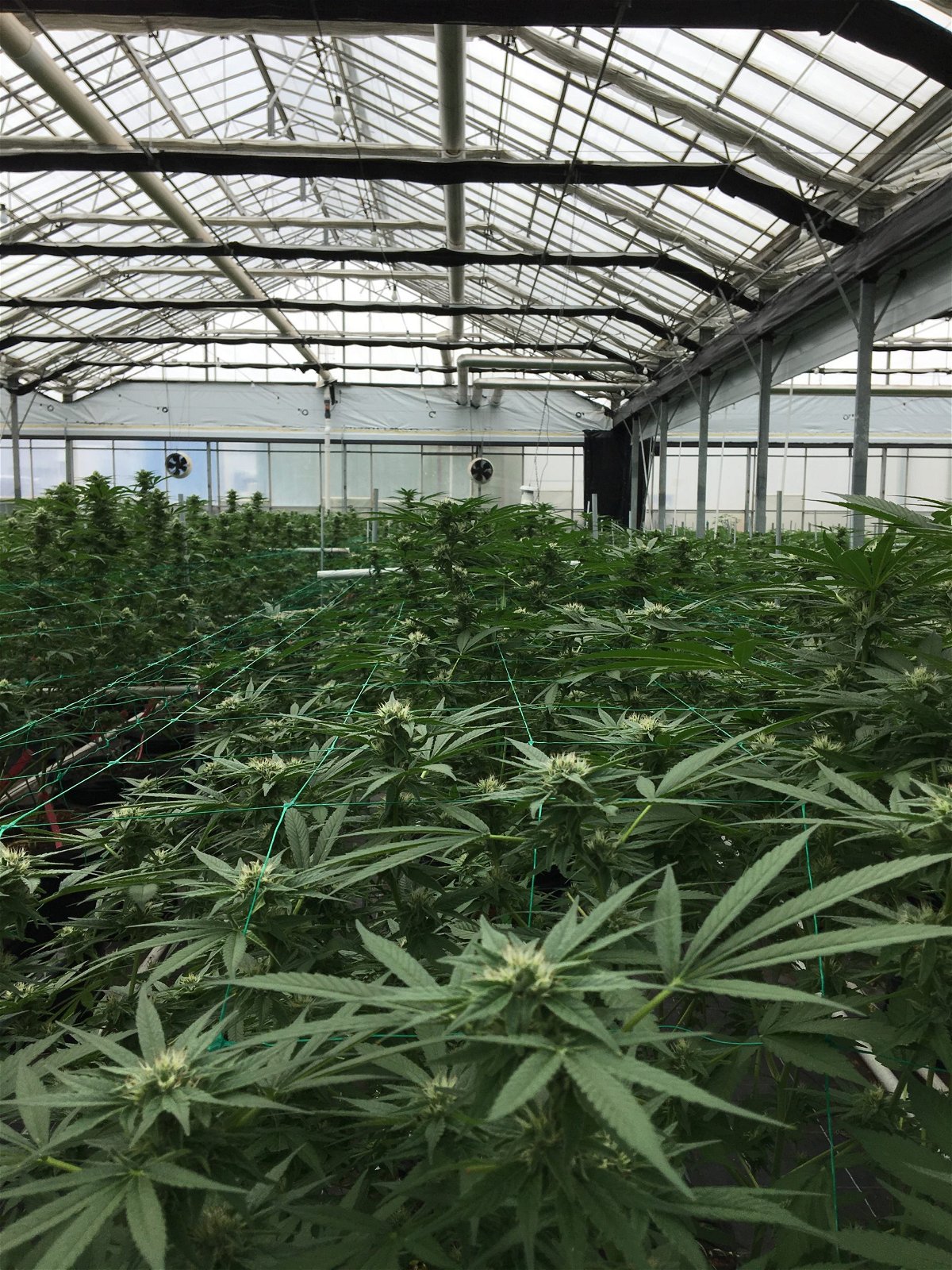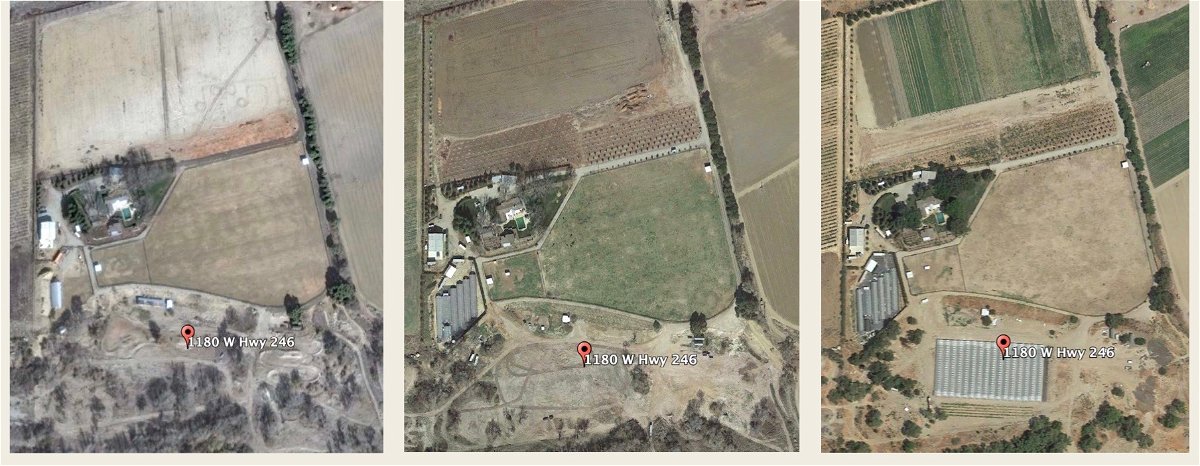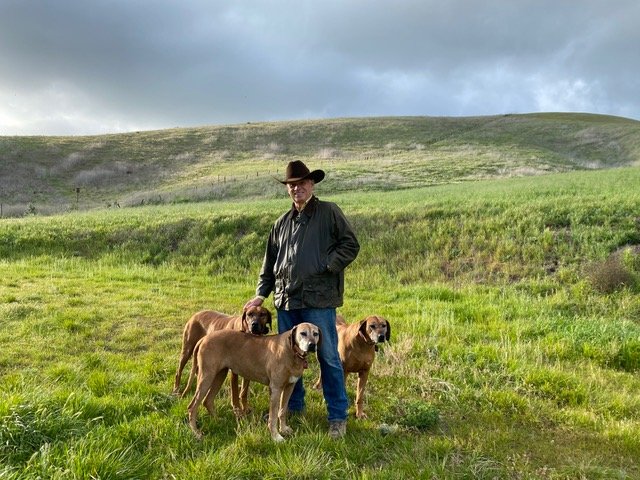Lawsuit seeks to shut down Busy Bee’s Organics in wine country

County must rein in booming cannabis industry, coalition says
SANTA BARBARA COUNTY, Calif. - Taking aim at an industry it views as disruptive and out-of-control, a citizens’ coalition is suing the Board of Supervisors and the owner of Busy Bee’s Organics, a 22-acre cannabis project on Highway 246 that was unanimously approved for a zoning permit last month.
In a lawsuit filed on April 23 in county Superior Court, the Santa Barbara Coalition for Responsible Cannabis, Inc., a nonprofit group, alleges that Sara Rotman, the owner of Busy Bee’s, and her agents, illegally expanded a medicinal operation from a single greenhouse in early 2016 to more than seven acres in 2018 – and that the supervisors broke their own zoning rules in validating that expansion with an after-the-fact permit.
The coalition claims that the county failed to properly review the environmental impacts of cannabis on the lucrative wine-tasting business in and around Buellton, including the pungent smell of marijuana plants; and that the county broke state law by allowing cannabis operations such as Busy Bee’s to qualify for tax breaks as agricultural preserves.

Coalition backers are seeking a court order to void Busy Bee’s permit and halt its operations, pending further review.
“This lawsuit is a last resort,” said Debra Eagle, a coalition board member and the general manager of Alma Rosa Winery at 7250 Santa Rosa Road. “Respect and moderation is all we are asking for.”
More than 200 vintners, farmers and homeowners from Carpinteria to the Santa Ynez Valley wine country and the foothills of the San Rafael Mountains make up the coalition. It is the second major lawsuit brought by the group this year, and it is sure to widen the fissures in the community over how and whether to crack down on the booming industry.
On one hand, the Board of Supervisors majority views cannabis as a tax bonanza and strives at every turn to accommodate the growers, most of whom continue to operate here without county permits or business licenses, three years after California voters legalized marijuana for recreational use.
On the other hand, residents who say the proliferation of cannabis “grows” is ruining their quality of life are fighting on multiple fronts: they are routinely challenging cannabis permits at county hearings on policy grounds, and, as a political matter, an active faction campaigned hard but unsuccessfully last fall to oust Supervisor Das Williams, the chief architect of the county’s cannabis ordinance.

This January, joined by several homeowner groups, the coalition filed a formal complaint with the U.S. Attorney’s Office, requesting a federal investigation into cannabis operations in Carpinteria.
County Counsel Michael Ghizzoni said Tuesday that the county had not yet received a copy of the coalition’s latest lawsuit.
“We generally don’t discuss our litigation posture,” he said, adding that the county would likely file a formal response in May.
But Susan Petrovich, a Santa Barbara land-use attorney who represented Busy Bee’s during county review, said the owners were disappointed that the coalition had decided to file suit. Busy Bee’s, she said, is a “model, outdoor, sun-grown cannabis farm that is frequently held as the gold-standard by government officials.”
“More than 10 local and state agencies have reviewed and approved the project and found it to meet or exceed their rigorous requirements,” Petrovich said. “This is an end-run around the long-since expired statute of limitations to challenge the county’s cannabis laws.”
“Different tack”
On Jan. 23, the coalition and three Carpinteria homeowners sued four greenhouses on Foothill Road, asking for a court order to stop the “ever-present noxious odor” of marijuana plants from wafting into their neighborhood.
Santa Barbara County is second in the state only to Humboldt for the number of active state business licenses for cannabis growers – 1,164 in all. The county has set a cap for cannabis at 1,761 acres, mostly outside the coastal zone.
To date, county records show, zoning permits have been issued for only about 240 acres of cannabis cultivation, while permit applications for 2,400 acres – more than will be allowed – are in the pipeline. By contrast, the coalition notes, Sonoma County has capped cannabis cultivation at one acre per parcel; 88 growers are currently operating on 88 acres there.
“Santa Barbara County is deliberately taking an approach that is a completely different tack from every other county in the state,” Eagle said. “It’s very upsetting to those of us who want to live here.”
According to the coalition, 19 cannabis permits are pending on 610 acres in the Sta. Rita Hills, a federally-designated American Viticultural Area between the cities of Lompoc and Buellton, intersected by Highway 246 and Drum Canyon and Santa Rosa roads.
“My winery and grape-growing businesses are being threatened with their demise, my land will no longer be able to produce historically high-value agriculture, my employees and loved ones are at risk, and I cannot breathe,” said Blair Pence, a coalition co-founder and the owner of Pence Vineyards & Winery at 1909 West Highway 246. “Does that provide the requisite clarity?”

Busy Bee’s was the first cannabis project to come before the supervisors on appeal. The second, Santa Barbara West Coast Farms, a 50-acre cannabis cultivation and processing operation on Highway 246, half a mile west of Busy Bee’s and more than twice the size, was approved by the board 3-2 on April 21. Pence appealed both projects as they made their way through county review.
A third project, Santa Rita Valley Ag, for 32 acres of outdoor cannabis cultivation on Highway 246, will be reviewed by the board on May 5. Again, Pence is appealing the county Planning Commission’s approval, requesting that the board deny the project.
In a written statement this week, Andrew Rice, a spokesman for Rotman, called the coalition’s lawsuit a “frivolous” attempt to “obstruct the farming of a pesticide-free, organic, legal and environmentally friendly crop” and undermine “the broad public support Santa Barbara voters have shown for cannabis legalization.”
Busy Bee’s owners, Rice said, are “not surprised” that Blair Pence “has followed through on his numerous public threats to fight every single cannabis project that is approved in a two-mile stretch of the Santa Ynez Valley near his winery … We’re not his first target, and we won’t be his last.”
Sealed greenhouses
Beyond Busy Bee’s, the coalition wants tougher restrictions on all cannabis, said Marc Chytilo, the group’s environmental law attorney. The county could, for example, limit cultivation to sealed greenhouses in the Carpinteria Valley, where cannabis is being grown in open-vented former flower greenhouses, and in the North County, where it is being grown outdoors, Chytilo said.
“The voters approved cannabis, but the process has failed us,” he said. “What we’re seeing really clearly is that too many cultivation operations in the same area create problems.”

Vintners say the smell of cannabis from Busy Bee’s and the “wall of trees” blocking views of the countryside around the outdoor grow will discourage tourists who are drawn to Highway 246 near Buellton for its scenic vistas and boutique wines. They want the county to conduct more research to determine whether volatile oil compounds from cannabis, called “terpenes,” can be absorbed by grapes.
And vintners worry that they could be sued by cannabis operators if the pesticides they spray on wine grapes, including organic chemicals, are carried by wind or fog onto cannabis, a product with zero pesticide tolerance.
“The wine industry has realized they may not be able to operate in close proximity with cannabis,” Chytilo said. “The county’s review process failed to recognize that. The first thing you do is protect the existing economies, and in the case of the wine industry, it requires an extensive investment and has yielded the community sustainable and long-term jobs.”
“No one wants to resolve these conflicts in a courtroom. We need the board to recognize the inadequacies of the existing program and fix it.”
In a letter last month to the board, Amy Steinfeld, an attorney for Busy Bee’s, stated that there was no evidence of the “supposed effects” of “terpene taint” from cannabis in wine grapes.
“The Busy Bee project is directly adjacent to a vineyard, and over the past five years growing cannabis, Busy Bee has had no issues with their neighbor,” she said.
Throughout the review of cannabis projects, county officials have argued that the overarching environmental impact report for the industry covers all the bases. It was certified by the Board of Supervisors in February, 2018. The report concluded that “significant and unavoidable impacts,” including “objectionable or offensive odors,” would be created by clusters of cannabis operations; but the board voted to override these findings in the interest of developing “a robust and economically viable legal cannabis industry.”
Illegal expansion?
At the board’s hearing on Busy Bee’s, Chytilo displayed slides of aerial Google Earth photos from 2015 and 2018 – proof, he said, that Rotman illegally expanded her grow from one greenhouse to what appeared to be six greenhouses and 16 hoop houses.
The issue of expansion will be key as more growers come forward to obtain county zoning permits. Most of the permit applications in the pipeline are for cannabis operations that were designated by the county as “legal, non-conforming” – that is, the owners signed affidavits affirming that they were growing medicinal marijuana before 2016. The board duly forwarded letters to the state, authorizing these owners to continue growing cannabis under temporary state licenses, so long as they applied for a county zoning permit and a county business license.
“Not having a permit means there are no rules,” Chytilo said. “It is these unregulated grows that have been responsible for habitat destruction, illegal wells and use of pesticides. It’s unclear whether these grows on any given day are selling to the black market. It’s a free-for-all.”
The county’s land-use ordinance prohibits the expansion of any “non-conforming” use of land. During Busy Bee’s hearings, county planners said they began an investigation of an alleged zoning violation regarding an expansion of operations, but dropped it when Rotman applied for a permit – a decision that the coalition says “incentivizes bad actors.” County planners explained it was simply what they would normally do, say, in a case involving the illegal addition of a third bedroom.
Which doesn’t sit well with vintners, Eagle said: “You can’t build a winery and get permission after the fact.”
During the past two years, the county has shut down a number of cannabis operators for lying on their affidavits because they were found to have been growing no cannabis prior to 2016. And, noting that the state limited medicinal cultivation to no more than 100 square feet, the coalition asserts in its lawsuit that “most” of the cannabis operations in the county have illegally expanded “well beyond” beyond their medicinal grows. But the county itself does not keep track.
In her letter to the board, Steinfeld said that after Rotman bought her property in 2014, she began plowing up all of the arable acreage and grazing farm animals in order to restore the depleted soil for medicinal cannabis.
“Busy Bee began planting cannabis seeds throughout the farm in July, 2015,” she said. “… Busy Bee’s project not only meets, but exceeds standards.”
Taxing questions
In a final argument against Busy Bee’s, the coalition challenges the county’s definition of cannabis as an “agricultural use” that qualifies for tax breaks under the Williamson Act. The conservationist law provides a taxpayer subsidy for farmers in order to protect farmland from urban development.
Under the Act, the commercial production of an agricultural commodity doesn’t require findings of compatibility with surrounding farms. As a result, the coalition argues, there was no county review of how Busy Bee’s operations might affect adjacent orchards, row crops and vineyards, all of which are in longstanding agricultural preserves.
On March 13, the California Farm Bureau Federation, an organization with more than 500 members in Santa Barbara County, sent a letter “to respectfully raise a legal issue” with the Board of Supervisors, stating that the county’s definition of cannabis as an “agricultural use” was “not compliant with” the Williamson Act.
But Ghizzoni contends that the state allows counties to set their own rules. The board can change them later, he told the supervisors last week, “but our current rules properly classify cannabis as an agricultural use.”
Melinda Burns is a freelance journalist in Santa Barbara.
